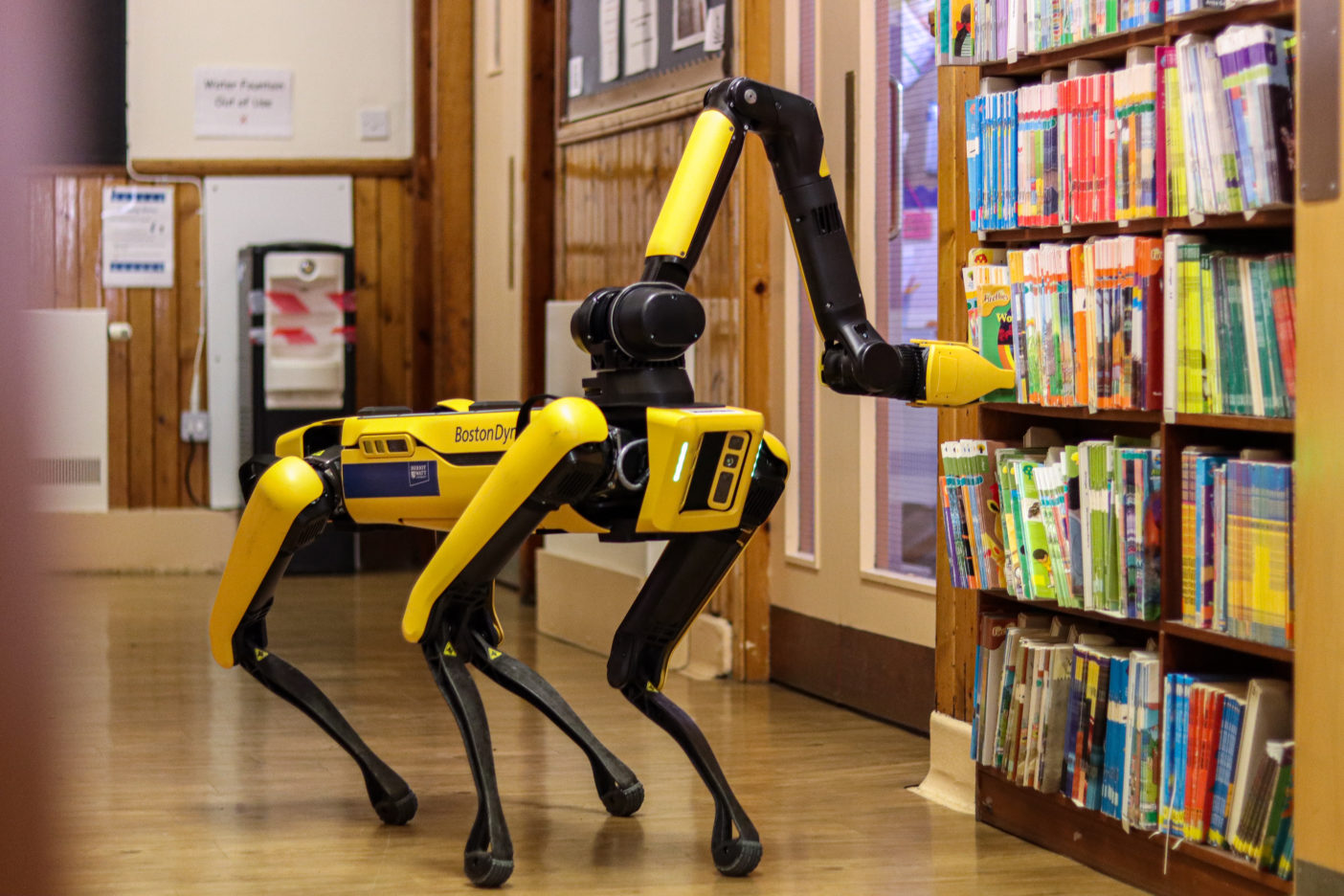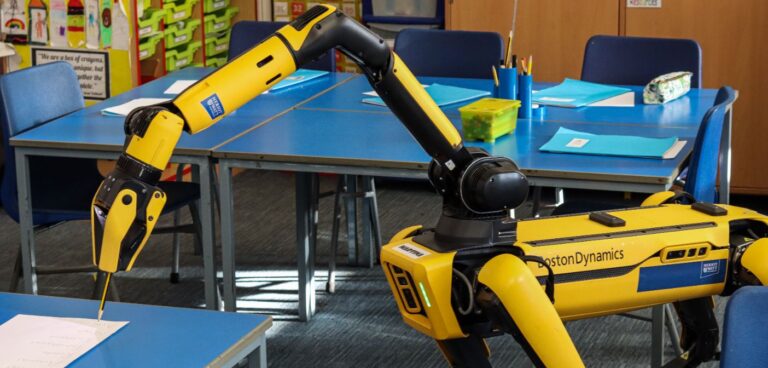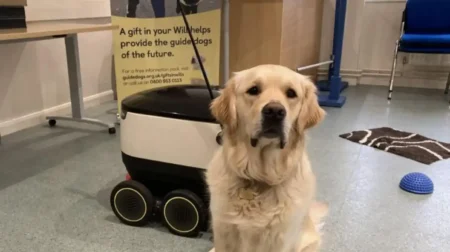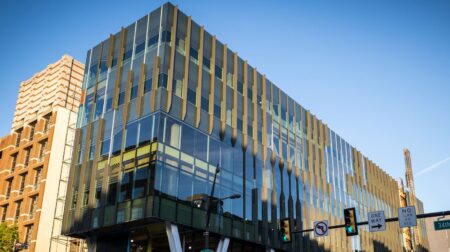The National Robotarium, supported by Heriot-Watt University and the University of Edinburgh, has launched its first public outreach programme to inspire and educate young people about robotics and AI.
With the aim to drive engagement and broaden access to technology, the programme will build future skills and encourage more young people from a wider range of backgrounds to consider starting a robotics career.
UK government minister for Scotland, Iain Stewart, said: “Robotics is an area with tremendous potential to help us all live healthier, safer, more prosperous lives. Our children stand to benefit the most, and engaging them early in this cutting-edge sector is essential to ensuring Scotland is at the forefront of this revolution.”
To celebrate the programme’s launch, more than 1,000 primary school pupils from 39 schools across Edinburgh and South East Scotland entered a competition to name the National Robotarium’s new ‘Spot’ robot dog.
Pupils from the region were asked to create a name for Spot or design a robot that could help humans in the future. The winning name ‘M.A.R.T.I.N.’, with the acronym standing for Mechanical, Artificial, Remote, Technological, Intelligent, Ninja, was submitted by Aberlady Primary School near Edinburgh.

M.A.R.T.I.N. has since been joined at the National Robotarium by a second robot dog, which will be named MA.R.T.I.N.A. with the final ‘A’ acknowledging its robotic arm. The two robots have been fitted with specially created hardware to carry out research into how robots can support humans in offshore energy inspection, construction and disaster recovery.
The newly named M.A.R.T.I.N. and MA.R.T.I.N.A. toured the winning schools with a team of robot scientists from National Robotarium. The visits were accompanied by a workshop on hazardous environment research.
Professor Petillot, co-academic lead of the National Robotarium, said: “The National Robotarium is keen to engage as many young people as possible in AI and robotics research to inspire the scientists of the future.
“The enthusiasm the pupils have shown in taking part in this competition is fantastic as it proves how much interest there is in robots. Events of this type are essential to build understanding about how robots will work together with humans going forward. I’m excited to see how the next generation will embrace technology and evolve it with the new ideas they will bring to the field.
“Through this competition we’ve been able to highlight the many ways robots can make life easier for humans both now and in the future, whether supporting the social care sector like the fantastic idea of the ‘Care Taker Bot’, or making it safer to carry out tasks in dangerous environments, like the innovative ‘Fire Bot’. We are already working on research in these and many other sectors to make life easier, safer and more supported for people.”








